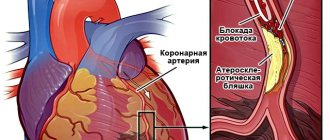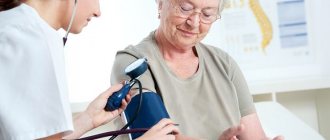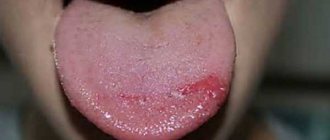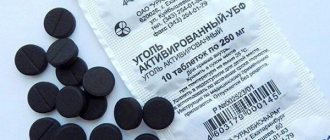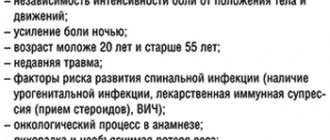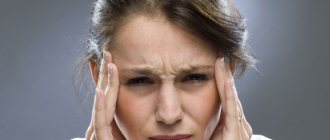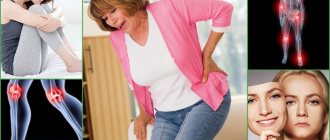During menopause, a woman is characterized by certain, not always pleasant, states. Well, you just need to take it for granted and try to find a common language with your now somewhat updated body. However, rapid heartbeat during menopause, especially if such a symptom has not been observed before, makes a person worry. After all, this may be a sign of a serious illness, which may not end entirely well. There are even cases where a person died from an attack of tachycardia.
Why do you need to monitor your heartbeat during menopause?
The condition of the whole organism depends on how the heart works. Its work is that the muscles of this organ either tense or relax. It ensures blood flow to all organs, supplying them with oxygen and a complex of nutrients. When the heart relaxes, it gains strength for the next beat.
Therefore, when the heartbeat occurs too frequently during menopause, the organ does not have time to rest and does not have time to supply the entire body with oxygen and nutrients. This affects the condition of the whole organism. Therefore, a person’s health condition deteriorates, and his general well-being also deteriorates.
During menopause, the heartbeat is often disturbed, and such a disease in medical science is called tachycardia.
Causes of heart palpitations during menopause
As you know, hormones have a significant impact on the functioning of the human body, and this is especially true for the female sex hormone estrogen, which regulates many processes in the body of a beautiful lady.
This hormone affects the state of the nervous and cardiovascular systems and affects the functioning of the heart. Among other things, the hormone estrogen regulates the expansion and contraction of the heart arteries. And when there is not enough hormone, they begin to narrow, which also interferes with the normal blood supply to the whole body.
In addition to purely menopausal causes, tachycardia has other explanations:
- Overactive thyroid gland.
- Decreased oxygen levels in the blood.
- High body temperature.
- Sometimes taking certain medications can cause your heart to beat faster. Therefore, it is very important to study the instructions before taking them and, together with your doctor, once again work through the situation when there are problems with the heart rhythm.
- Abuse of drinks that contain caffeine.
- Bad habits affect your heart rate, especially smoking.
- People who are prone to heart rhythm problems are negatively affected by even the slightest stress and anxiety situations. What can we say about when the patient is under constant stress due to some life circumstances.
Causes of heart pain during pregnancy
Pain in the heart: symptoms in women during pregnancy may be associated with changes that the woman’s body undergoes, with oxygen starvation of the heart muscle, and with diseases of other organs.
The following factors lead to complaints caused by physiology:
- progressive increase in body weight of the pregnant woman, which leads to increased stress on the heart;
- the formation of a third circle of blood circulation between the maternal body and the fetus, which leads to an increase in the volume of circulating blood and, as a result, the load on the heart muscle increases;
- The increasing volume of the uterus puts pressure on the diaphragm, thereby reducing the volume of the mediastinum, which also does not facilitate the work of the heart.
Factors that provoke oxygen starvation of the heart muscle:
- long stay in a stuffy room;
- long-term static loads;
- hot dry air;
- active walking;
- stress.
Non-cardiac reasons:
- intercostal neuralgia;
- inflammation of muscle tissue (various myositis);
- Iron-deficiency anemia;
- osteochondrosis, scoliosis.
Symptoms of tachycardia during menopause
As for the symptoms of this disease, in all cases they are the same, regardless of what causes this disease. The following symptoms and conditions will help recognize tachycardia:
- A sharply increased heartbeat, which is felt without any measuring instruments; the heart literally moves.
- Dizziness. Sometimes a person can lose orientation in space and balance.
- There is a fear that something terrible will happen. For example, death.
- Difficulty breathing, feeling of constriction in the chest area.
- High blood pressure.
- Sometimes there is a feeling of heat in the upper body, trembling in the limbs.
Attention! Tachycardia usually does not occur on its own. It is typical even for a healthy person after severe physical exertion or emotional shock. However, these symptoms disappear quickly. If this does not happen, and high blood pressure is added to the rapid heartbeat, then it is recommended to call an ambulance.
Causes of heart pain in women
Pain can be caused by heart pathology, as well as disruption of other organs.
Cardiac reasons:
- cardiac ischemia;
- acute infectious process (endocarditis, myocarditis, pericarditis);
- hypertonic disease;
- myocardial hypertrophy;
Myocardial hypertrophy can cause heart pain in women and men
- pulmonary embolism;
- dissecting aortic aneurysm;
- pneumothorax unrelated to chest trauma.
Extracardiac causes:
- vegetative-vascular dystonia;
- menopausal syndrome;
- hiatal hernia;
- pathology of the spinal column (osteochondrosis, scoliosis, intervertebral hernia);
- GERD (gastroesophageal reflux disease);
- breast tumors;
- rib damage;
- COPD (chronic obstructive pulmonary disease), pneumonia;
- intercostal neuralgia;
- injuries or diseases of the shoulder joint;
- stomach ulcer.
How to provide first aid during an attack of tachycardia?
If you or a loved one has an attack of tachycardia, then you need to know about the rules of assistance that you can provide to him before the ambulance arrives.
- The patient should be seated in a chair, sofa or couch.
- Try to open a window and provide air flow. If this is excluded, then begin to intensively fan the patient, at least with a piece of paper.
- Unfasten your outerwear, loosen your belt and bra clasp.
- Try to calm the patient down, do not lead him to a panic attack.
- Make sure he tries to breathe deeply and steadily.
Attention! If you or your loved one has an attack of tachycardia, then do not be a hero and do not let everything take its course, because an ambulance called in time can even save the patient’s life.
Drug treatment of tachycardia during menopause
As for medications for menopausal tachycardia, only a doctor prescribes them, but it is worth having an idea of what groups of medications are usually used to eliminate this ailment.
- Drugs that can reduce the irritating effect of stress hormones.
- Mild sedatives, which are also called sedatives in medical practice.
- Antioxidants are means for improving blood supply to the body.
- Vitamins help maintain the general condition of the body, since during menopause the body is weakened and needs additional support.
Non-drug treatment for palpitations during menopause
In order to prevent attacks of tachycardia from recurring, you need to be able to rest, relax, and relieve stress. The following works well for this:
- Breathing practices. This is the simplest and most accessible option to calm down if you realize that you are about to start getting nervous. Sometimes a few deep breaths, engaging your belly, are enough for stress to recede and allow you to think sensibly.
- Yoga.
- Meditations.
In order to learn these techniques, you need to attend special trainings or health groups that are created specifically for women experiencing menopause. In addition to helping the heart, such activities will help you simply feel good during menopause, because physical activity has never harmed anyone. Also, a woman will be able to find friends among the participants in this group or seminar, make new and interesting acquaintances that will help her take her mind off the blues that usually overcome women during menopause.
If there is no financial opportunity to attend trainings and health groups, then you need to read special literature about relaxation during menopause, buy CDs with video lessons or watch them on the Internet.
Symptoms of heart pathologies
Heart pain (symptoms in women can have different manifestations) has several causes:
- a feeling of “brokenness”, fatigue, poor appetite, heaviness and swelling of the lower extremities;
- shortness of breath, which can manifest itself as slight difficulty breathing or suffocation even with minor physical exertion, and in severe situations even in a resting position;
- tachycardia, which is manifested by increased pulse and heart rate; rhythm disturbances may be observed, such as extrasystole or, conversely, loss of contraction of the heart muscle;
- syncope, loss of coordination of movements;
- short-term loss of consciousness;
- pain syndrome of varying intensity and duration;
- insomnia;
- causeless anxiety.
Folk remedies to relieve symptoms of tachycardia during menopause
There are also traditional medicines that help the patient solve problems with heart rhythm. Usually these drugs also have a sedative effect. Of course, traditional medicine is not medicine in the usual sense: it will not cause any significant side effects, but their use should still be agreed with a doctor.
The following remedies are good for menopause as they help reduce symptoms.
- Hawthorn fruit juice should be taken 15-20 drops per half glass of water. This will help you calm down and not worry so much about the hormonal changes occurring in the body. If you don’t have hawthorn fruit juice on hand, the dried plant itself will do. To treat tachycardia, you need to brew a pinch of herb with a glass of hot water and leave for a couple of hours to infuse, then strain and take one-third of a glass half an hour before meals three times a day.
- Sage helps keep estrogen levels normal and helps cleanse blood vessels. It can be taken both in the form of decoctions and infusions. Sage helps reduce hot flashes and their intensity. You can forget about such a problem as rapid heartbeat, since tachycardia during menopause often occurs precisely because of hot flashes.
- You can also consume herbs in the form of tea. To do this, take yarrow, thyme and mint in equal proportions, brew with boiling water and simply drink this instead of tea.
Thus, tachycardia during menopause is not a rare phenomenon, but this does not mean that one must put up with it. There are many ways to bring your condition back to normal. To do this, you need to approach treatment comprehensively, coordinate it with your doctor and undergo treatment regularly.
Also, do not forget about prevention methods during menopause, because heart palpitations during menopause, the treatment of which is very difficult and time-consuming, and it is better simply not to bring it to critical levels.
Informative video on this topic:
About
Types of pain
- Aching pain in the heart: is constant, caused by excessive stimulation of nerve endings as a result of the development of the inflammatory process.
- Dull: is permanent, caused by excessive stimulation of nerve endings as a result of the development of the inflammatory process.
- Stitching: occurs against the background of inflammation, intensifies during breathing or coughing, the intensity decreases while taking analgesics.
- Pressure: occurs during physical or emotional stress, passes quickly with rest, is associated with an increased need for oxygen in the heart muscle, and may be accompanied by shortness of breath.
- Acute: occurs suddenly, lasts for a short time, and is usually preceded by a state of absolute rest.
- Burning: occurs during physical or emotional stress, quickly passes with rest, is associated with an increased need for oxygen in the heart muscle, and may be accompanied by shortness of breath.
- Pain when inhaling: if its intensity changes, then it is not associated with heart pathology, and if it occurs at rest, then urgent consultation with a doctor is necessary.
- Pain in the heart , radiating to the arm: associated with the joint innervation of the heart and the upper girdle of the skeleton, may be accompanied by numbness of the arm and cold sweat.
- Pain during movement : increased intensity of pain most often indicates extracardiac pathology.
